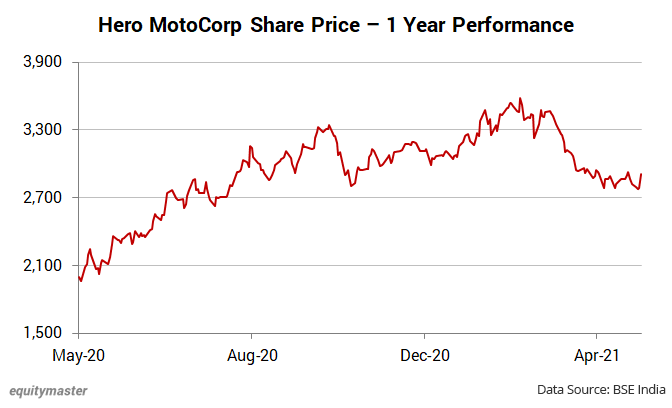Indian Share Markets Open Higher; IndusInd Bank & SBI Top Gainers
Asian stock markets are trading on a cautious note today ahead of what are expected to be upbeat readings on the Chinese economy.
The Hang Seng is trading up by 0.4% while the Nikkei is trading down by 1.3%. The Shanghai Composite is trading up by 1%.
In US stock markets, Wall Street indices closed higher on Friday as investors took a weaker-than-expected reading of April retail sales in stride, shaking off a tumultuous week that has been marked by growing inflation fears.
But the sharp gains weren't large enough to reverse weekly losses for the major stock benchmarks, after reports on inflation, labor shortages, and higher commodity prices raised concerns that the Federal Reserve would have to pull back on its easy-money policies sooner than expected.
The Dow Jones Industrial Average rose 361 points or 1.1%, while the Nasdaq Composite closed up 2.3%.
For the week, both indexes registered losses. The Dow lost 1.1% while the tech-heavy Nasdaq was the hardest hit, losing 2.3% for the week and logging its fourth consecutive week of declines, the longest such stretch since August 2019.
Back home, Indian share markets have opened on a positive note, following the trend on SGX Nifty.
Bharti Airtel, Federal Bank, Colgate-Palmolive, and Orient Cement are among the 24 companies slated to post their quarterly results today.
The BSE Sensex is trading up by 211 points. Meanwhile, the NSE Nifty is trading higher by 58 points.
IndusInd Bank is among the top gainers today. L&T, on the other hand, is among the top losers today.
The BSE Mid Cap index and the BSE Small Cap index have opened higher by 0.5% and 0.8%, respectively.
Sectoral indices are trading in green with stocks in the banking sector and realty sector witnessing most of the buying interest.
The rupee is trading at 73.27 against the US$.
Gold prices are trading up by 0.7% at Rs 47,990 per 10 grams.
Gold rose to a three-month high as a weaker dollar and a dip in Treasury yields boosted gold's appeal after data last week showed US retail sales unexpectedly stalled in April.
In news from the automobile sector, Hero MotoCorp is among the top buzzing stocks today.
Hero MotoCorp, India's biggest two-wheeler manufacturer, has announced that it will be entering the growing industry of electric vehicles (EVs).
According to a company's senior official, Hero will be launching a new electric model next year.
The company will be using its Jaipur (Rajasthan) and Stephanskirchen (Germany) based R&D set-ups to develop its own products.
Earlier, the company had also announced its partnership with Taiwan-based Gogoro Inc to bring the latter's battery swapping platform to India.
Furthermore, both brands have also decided to collaborate on electric vehicle development to bring Hero-branded, powered by Gogoro network vehicles to market.
Note that the company has already entered two-wheeler EV in the form of investments in a Bengaluru-based EV startup Ather Energy.
Elaborating on the EV strategy, the company's CFO Niranjan Gupta said it's Germany and Jaipur-based R&D centers have been working to develop products based on the fixed charging systems.
The Gogoro partnership on the other hand is focusing on the swap-based system, he added.
He added that the tie-up with the Taiwan-based firm could also help the company to strengthen its own product development program.
In terms of new products, Hero MotoCorp said it is not delaying launches.
Hero MotoCorp's share price has opened the day up by 0.8%.
Speaking of Hero MotoCorp, have a look at the chart below to see how the company has performed over the past year:

In the past year, shares of the company have gained 37%. How the stock of Hero MotoCorp performs in the coming months remains to be seen.
Moving on to news from the finance sector, non-banking finance companies (NBFCs) have asked the Reserve Bank of India (RBI) to extend the relief on working capital limits announced earlier this month to MSMEs as well.
Recently, the RBI had announced a series of measures to help individual borrowers, small businesses, and MSMEs to tide over the second wave of Covid-19.
As part of these steps, the RBI had said that banks can recast the accounts of individual borrowers and small businesses who had restructured their loans under last year's resolution framework.
In such cases, banks have been permitted to modify these plans and they can increase the period of moratorium or extend the residual tenor up to a total of two years.
According to the Finance Industry Development Council (FIDC), a body that represents NBFCs, the RBI's circular is silent on whether such relief will also apply to MSMEs.
The industry body said that the second wave of Covid-19 has created new uncertainties in the country's economic revival and MSMEs are the most affected category, particularly in sectors such as education (school and school bus operators), transport (staff bus and route bus operators) and tourism (taxi operators, travel operators).
According to the FIDC, the earlier restructuring under Resolution Framework 1.0 was done for MSMEs based on expectations that market conditions would improve and should return to normalcy by March this year.
However, these customers, for whom the revival seemed promising in the past quarter, were substantially impacted by the second wave.
Therefore, the FIDC asked the RBI to provide relief to MSME customers whose contracts were restructured under Resolution Framework 1.0 so that banks can use the window to modify such plans and increase the period of moratorium or extend the residual tenor up to a total of two years.
How the above developments pan out remains to be seen.
Disclosure: Equitymaster Agora Research Private Limited (Research Analyst) bearing Registration No. INH000000537 (hereinafter referred as 'Equitymaster') is an independent equity research ...
more


